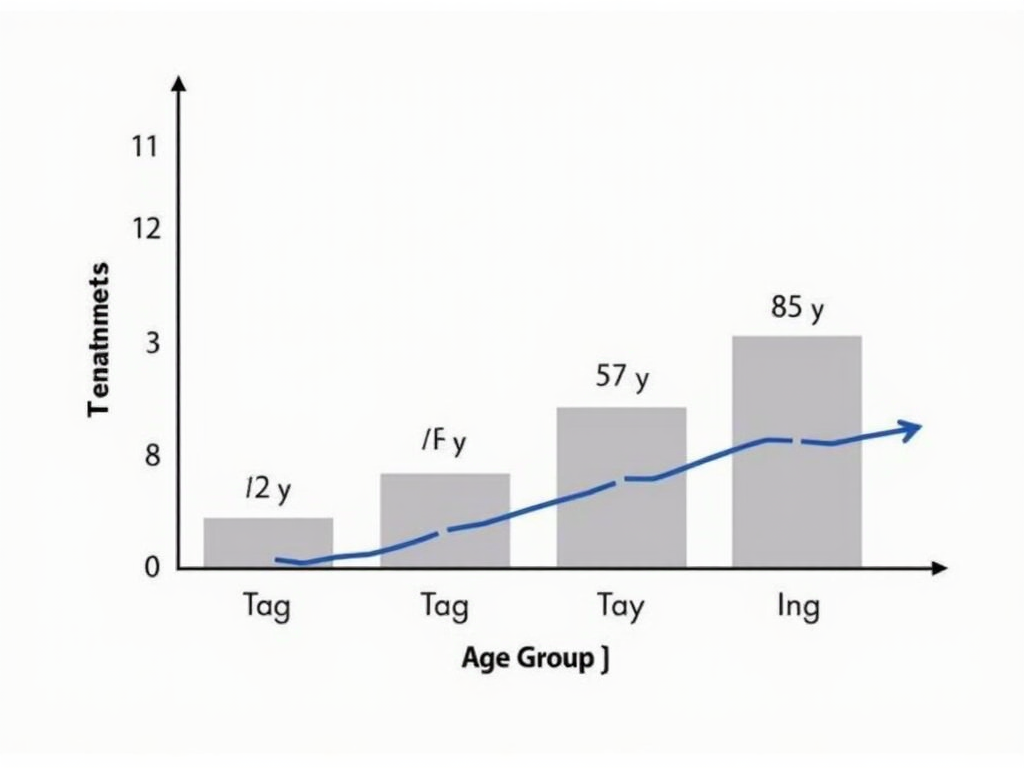Success Rates of Fertility Treatments: What You Need to Know
April 13, 2025, 8:04 a.m.
Fertility treatments have become a beacon of hope for many couples struggling to conceive. With advancements in medical science, these treatments offer a range of options to help individuals achieve their dream of parenthood. However, understanding the success rates of these treatments is crucial for setting realistic expectations and making informed decisions.

There are several types of fertility treatments available, each with its own set of procedures and success rates. The most common include:
- In Vitro Fertilization (IVF): This involves fertilizing an egg with sperm in a laboratory and then implanting the embryo into the uterus.
- Intrauterine Insemination (IUI): This procedure involves placing sperm directly into the uterus during ovulation.
- Fertility Medications: These are drugs that stimulate ovulation and can be used alone or in conjunction with other treatments.
- Surgery: In some cases, surgical procedures may be necessary to correct issues like blocked fallopian tubes or endometriosis.
The success rates of fertility treatments vary widely depending on several factors, including the type of treatment, the age of the woman, and the underlying cause of infertility. According to the Centers for Disease Control and Prevention (CDC), the average success rate for IVF in the United States is around 30% per cycle for women under 35, decreasing with age. For IUI, the success rate is generally lower, around 10-20% per cycle. Fertility medications alone have a success rate of about 5-10% per cycle.
For IVF, the success rates are as follows:
- Women under 35: 30-35% per cycle
- Women 35-37: 25-30% per cycle
- Women 38-40: 15-20% per cycle
- Women over 40: 5-10% per cycle
For IUI, the success rates are:
- Women under 35: 10-20% per cycle
- Women 35-40: 5-10% per cycle
- Women over 40: Less than 5% per cycle
Fertility medications have lower success rates, typically around 5-10% per cycle, regardless of age.

Several factors can affect the success rates of fertility treatments, including:
- Age: As mentioned, age is a significant factor, with success rates declining as women get older.
- Cause of Infertility: The underlying reason for infertility can impact the effectiveness of treatments. For example, treatments may be less successful if there are issues with both partners.
- Lifestyle Factors: Smoking, obesity, and other lifestyle choices can negatively affect fertility and the success of treatments.
- Quality of the Fertility Clinic: The experience and expertise of the clinic and its staff can also play a role in the success rates.
For many couples, the journey through fertility treatments is emotionally and physically taxing. The uncertainty of success can be overwhelming, and the financial burden can add to the stress. However, hearing stories of success can provide hope and encouragement. For instance, one couple I know underwent three cycles of IVF before finally conceiving their first child. Their perseverance and the support they received from their fertility clinic were key to their success.
The cost of fertility treatments can be a significant factor for many couples. IVF, for example, can cost anywhere from $10,000 to $15,000 per cycle, not including medications and additional procedures. IUI is generally less expensive, ranging from $300 to $1,000 per cycle. Fertility medications can cost several hundred dollars per cycle. It's important to discuss the financial aspects with your fertility clinic and explore options for insurance coverage or financing.
Choosing the right fertility clinic is a critical step in your fertility journey. Look for clinics with high success rates, experienced staff, and positive patient reviews. It's also important to consider the clinic's approach to treatment and whether they offer the specific services you need. Don't hesitate to ask questions during your consultation to ensure you feel comfortable and confident in their care.

The emotional toll of fertility treatments can be significant. Many couples experience feelings of anxiety, depression, and isolation during this time. It's important to seek support from friends, family, or professional counselors who specialize in fertility issues. Joining support groups or online communities can also provide a sense of connection and understanding.

Preparing for your first fertility consultation can be daunting, but being well-prepared can help ease the process. Here are some tips:
- Gather Medical History: Bring any relevant medical records, including previous test results and treatments.
- List of Questions: Prepare a list of questions you have about the process, costs, and success rates.
- Emotional Preparation: Be ready to discuss sensitive topics and consider bringing a support person with you.
- Research the Clinic: Look into the clinic's success rates and patient reviews to ensure it's a good fit for you.

In conclusion, understanding the success rates of fertility treatments is essential for anyone considering these options. While the journey can be challenging, being informed and prepared can make a significant difference. For those embarking on this path, remember that you are not alone, and there are resources and support available to help you through.